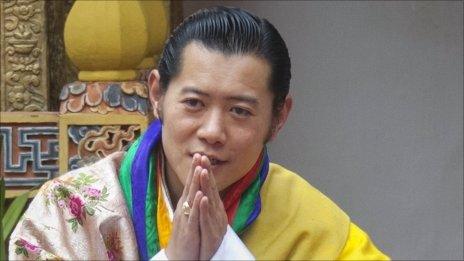Bhutan: Things you may not have known about the country
- Published
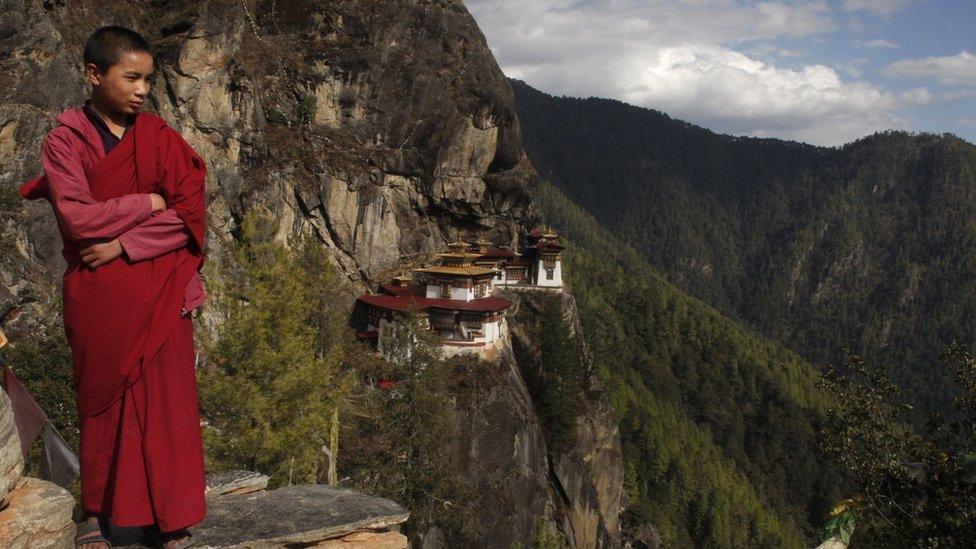
Packed with beauty, history and culture, Bhutan has plenty to offer visitors
Nestled between India and China, Bhutan is hosting some of its highest profile visitors, as the Duke and Duchess of Cambridge drop by after visiting India.
The tiny Himalayan Kingdom is little known by outsiders, so here's a Bhutan primer:
It is isolated, but less so than it used to be
Bhutan, which has no formal diplomatic relations with the UK, kept itself cut off from the world for centuries to protect its culture.
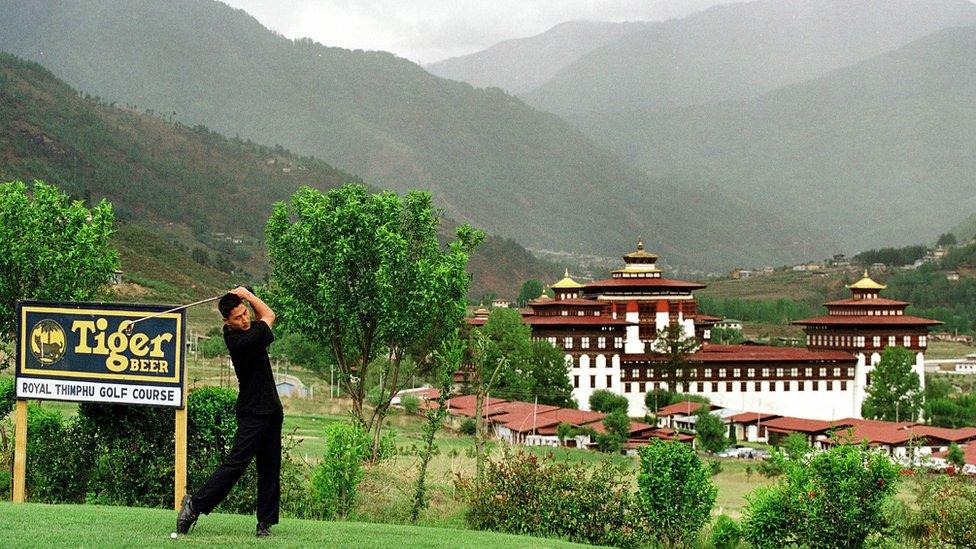
The country is no longer as cut-off from the outside world as it once was
The internet and television have only been allowed since 1999.
It was not until the 1970s that the first foreign tourists were allowed in, but the authorities still keep a close eye on foreign influences.
Things are changing fast
Smartphones and karaoke bars are now common in the capital, Thimphu, and young people, the majority of the population, have taken to social media with ease.
This has led to a boom in street fashion, alongside more open discussion of politics.
In a few ways, Bhutan has been at the cutting edge of international trends: plastic bags have been banned since 1999 and tobacco is almost wholly illegal.
By law, 60% of the country must always be forested.
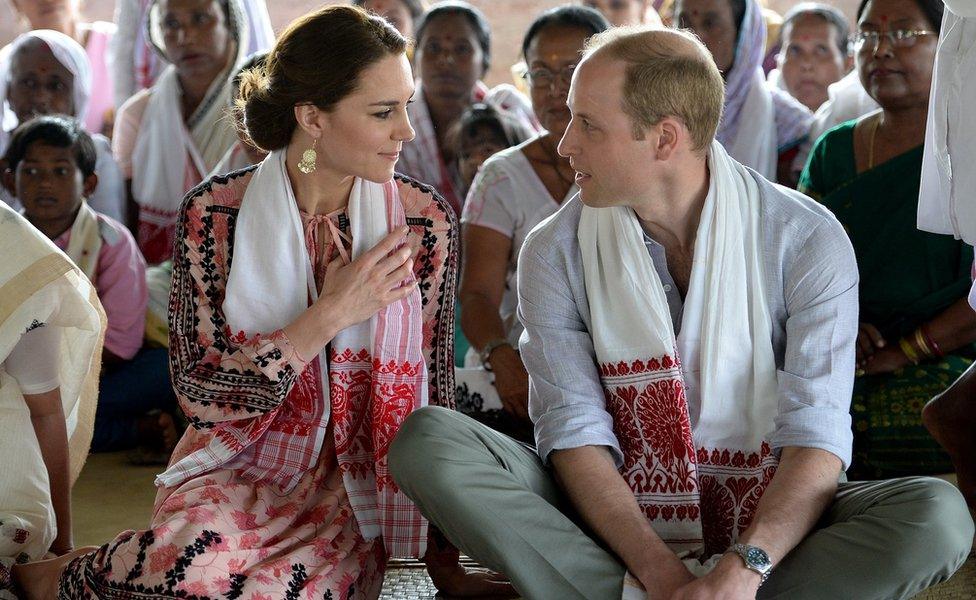
It's expensive to visit Bhutan, but the Duke and Duchess, seen here in India before going to Bhutan, should not have a problem
It's still not that easy to visit
Despite its spectacular scenery and fascinating culture, it remains relatively untouched by mass tourism, and deliberately so.
The government restricts numbers and charges visitors from outside South Asia about $250 (£155) a day to be there, making tourism an important source of income.
It is argued this makes tourism "low impact" in environmental and cultural terms, and helps preserve the unique magic of the place.
But with high government debt, there are calls to allow more tourists in.
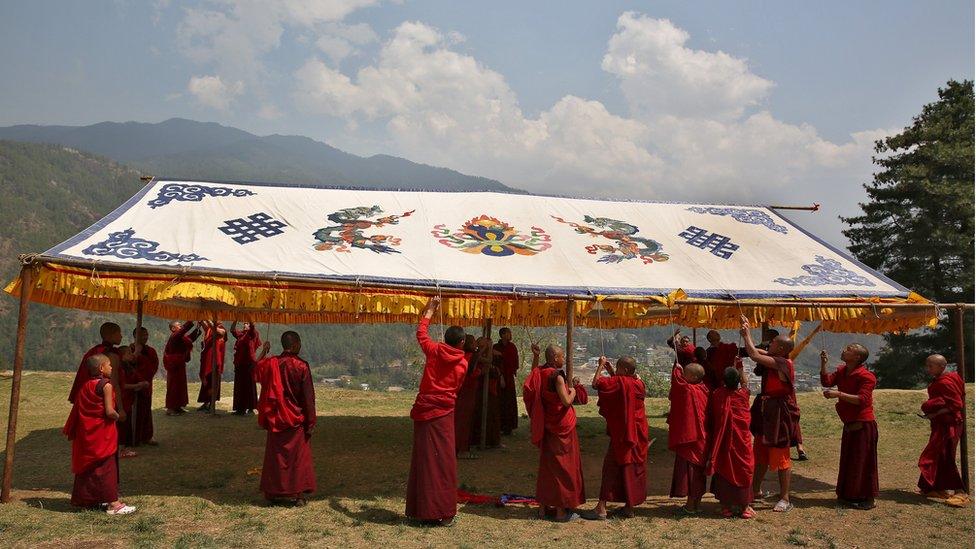
Preparations are being made for the arrival of Britain's royals
They have unorthodox economic metrics
Bhutan measures quality of life by Gross National Happiness (GNH) rather than Gross Domestic Product (GDP), striking a balance, the government says, between material and mental well being.
The rating is looked after from the Gross National Happiness Centre, external, run by a man who knows his fair share of the opposite too.
Many Bhutanese are famously satisfied with their lives.
But even the prime minister has suggested the concept is overused, and masks problems with corruption and low standards of living. Nearly 7% of young people are unemployed and it is one of the world's poorest nations, in GDP terms.
Kingdom of Bhutan
Capital: Thimphu
-
Population 750,000
-
Area 38,364 sq km (14,812 sq miles)
-
Major language Dzongkha
-
Major religions Buddhism (official), Hinduism
-
Life expectancy 66 years (men), 70 years (women)
-
Currency ngultrum
Main exports: Electricity - via hydroelectric power to India - timber, tourism, cement, agricultural products, handicrafts.
Military: It has an army but, being landlocked, no navy. It also has no air force - India takes care of that for them.
But not everyone is happy
The country has not been idyllic for everyone.
Slavery was only abolished in 1958 and, after a series of policies preferential to the Tibetan-based majority Bhutanese culture, clashes broke out with the minority Nepalese community in 1990.
Tens of thousands of them fled to refugee camps in Nepal and their status is still in dispute. Some of those left behind say they still face discrimination.
They love their king....
King Jigme Khesar Namgyel Wangchuck, who took over in 2006, has overseen dramatic political change in the country.
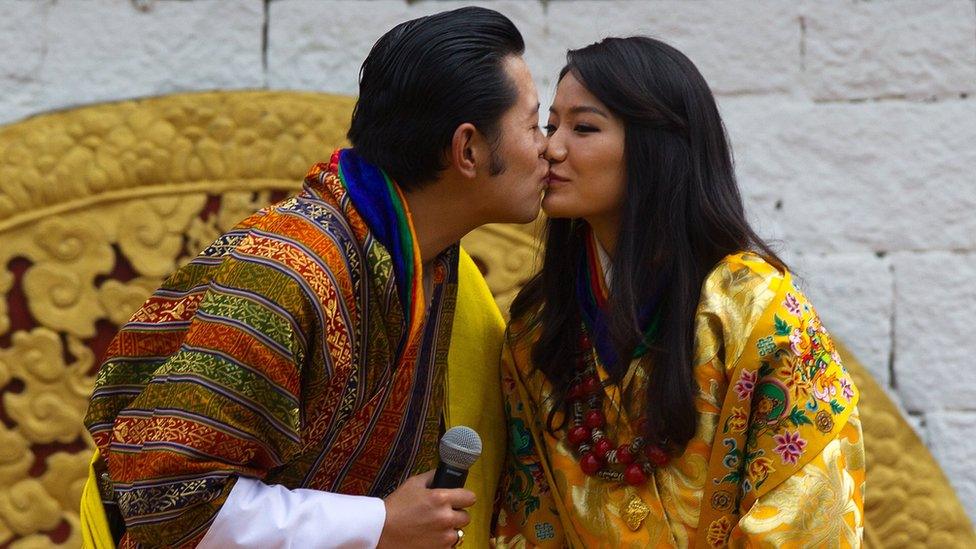
At 36, the king is one of the world's youngest monarchs
His father began the work when he gave up some of his absolute powers in 1998. Now there are elections for all levels of government.
The first general election, external was held in 2008. Only two parties took part, and the royalty-linked Bhutan Peace and Prosperity Party (DPT) won.
But the second election, in 2013, was won by the opposition People's Democratic Party (PDP).
The king, who was educated in India, the US and UK, is still revered and Queen Jetsun Pema, whom he married in 2011, is hugely popular.
...and they really love tree planting
Tens of thousands of people celebrated the birth of the couple's first child earlier this year by planting 108,000 tree saplings.
Tree planting is popular in the country, where they are a symbol of long life, beauty and compassion: in 2015, Bhutan set a Guinness World Record by planting almost 50,000 trees in just one hour.
- Published19 April 2016
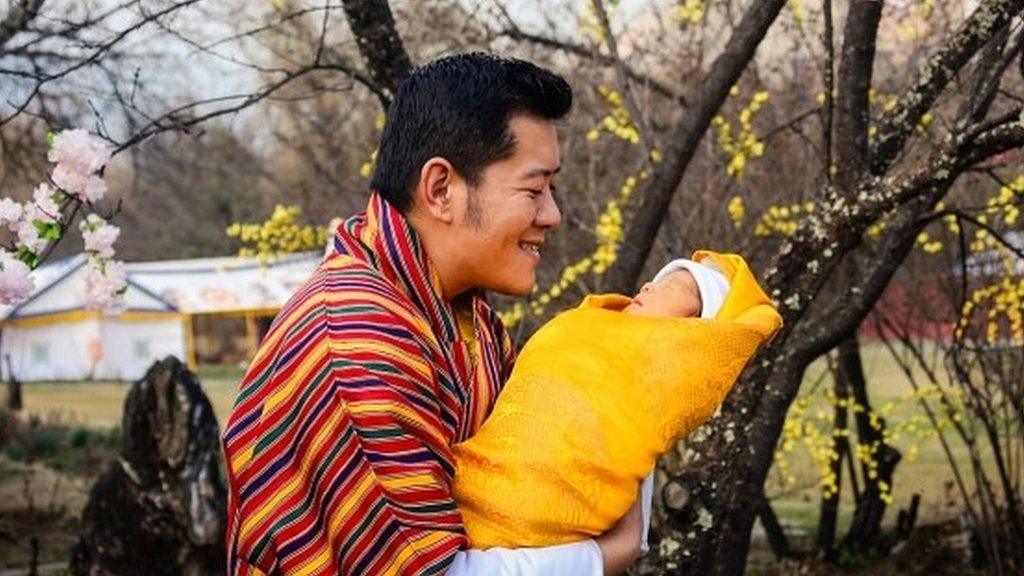
- Published25 July 2015
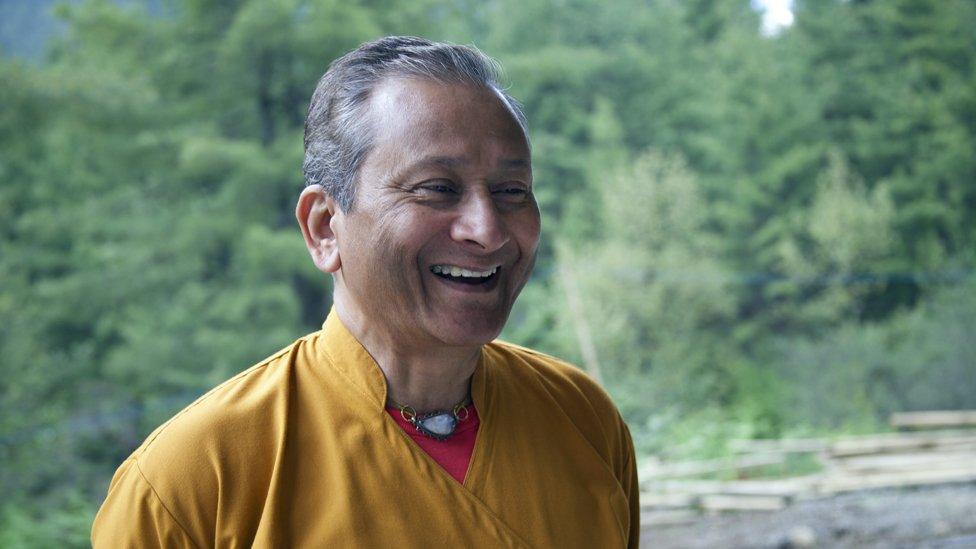
- Published2 June 2015
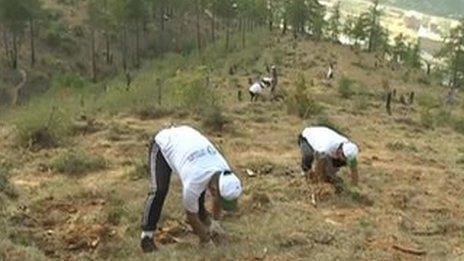
- Published19 February 2014
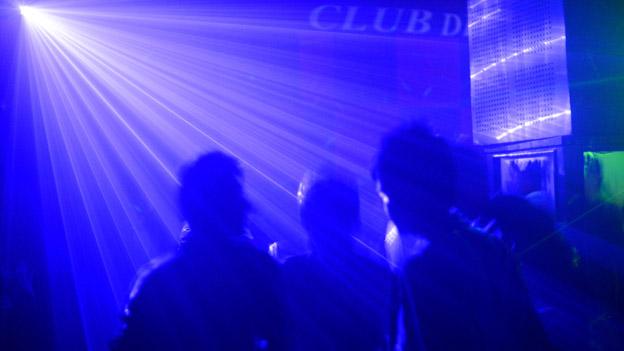
- Published30 October 2013
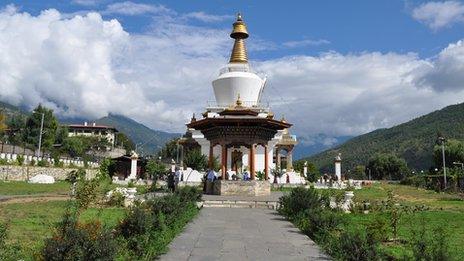
- Published10 March
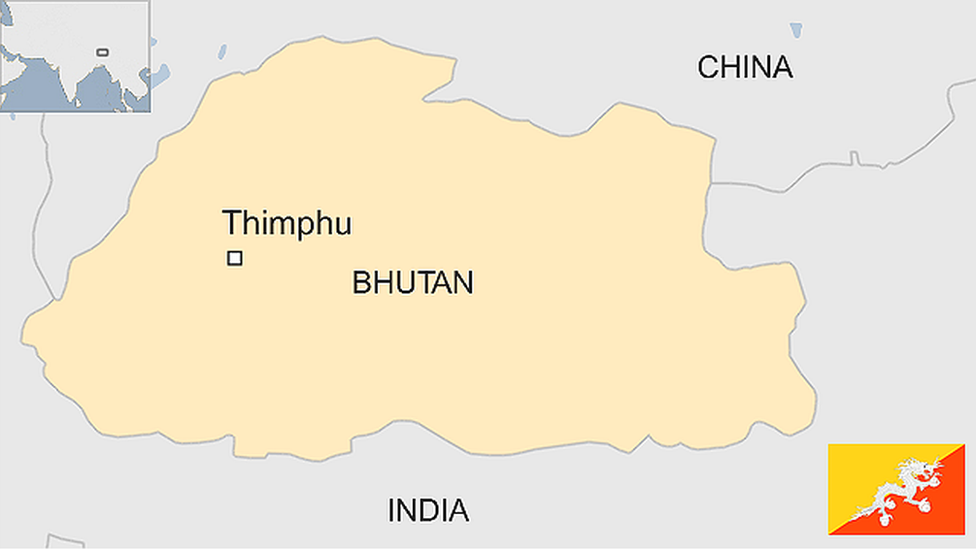
- Published13 October 2011
